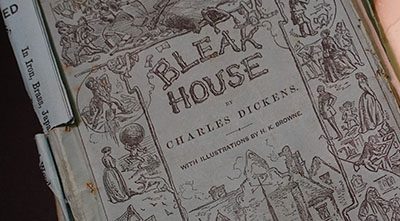Information contained on the website with respect to modules is correct at the time of publication, and the University will make every reasonable effort to offer modules as advertised. In some cases changes may be necessary and may result in some combinations being unavailable, for example as a result of student feedback, timetabling, Professional Statutory and Regulatory Bodies' (PSRB) requirements, staff changes and new research. Not all optional modules are available every year.
First Year Reading (October 2024 Entry)
As a first-year student at Lancaster, you will take three year-long modules.
The Department of English Literature & Creative Writing currently offers four such modules:
- ENGL100: Literature in Time
- ENGL101: World Literature
- ENG 102: Literature, Place and Space
- CREW103: Introduction to Creative Writing

Core Modules and Options
Depending on what degree scheme you decide to take will inform which reading lists to select from.
If you are coming to Lancaster to study Single Hons English Literature...
then you must do ENGL100, and we would encourage you to do ENGL101 and ENGL102. You may, though, want to take CREW103; however, you can, if you wish, take 1 or 2 modules from outside of the Department.*
If, though, you are coming to Lancaster to study English Literature and/or with Creative Writing...
then you must do ENGL100 and CREW103, and we would encourage you to do ENGL 101 or ENGL102; however, you can, if you wish, take 1 module from outside of the Department.*
* If you do choose to go outside of the Department, there are a host of wonderful modules to choose from.



.LancasterUniversityLibrary.DSC00009(2)-Copy(002).JPG)

